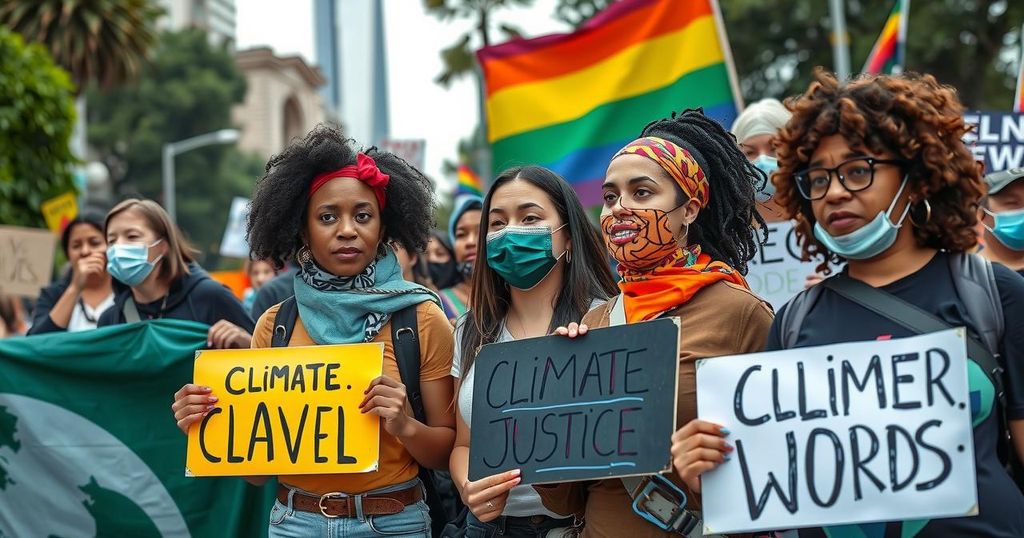On Saturday, around 50 Senegalese women marched in Dakar advocating for climate justice, demanding action from polluting countries ahead of COP29. They highlighted the recent devastating floods and called for accountability from industrialized nations, emphasizing the disproportionate impacts of climate change on Africa, which contributes only 3.8% of global emissions. Activists urged respect for the Paris Agreement and crucially addressed the need to protect vulnerable communities from further environmental degradation.
On Saturday, in Dakar, approximately 50 Senegalese women climate activists participated in a march advocating for climate justice, emphasizing the urgent need for action against countries they deem responsible for pollution. This annual event has been held since 2021, but its significance is notably heightened this year in the lead-up to the 2024 UN Climate Change Conference (COP29), scheduled for November 11. Participants shouted slogans such as “Down with capitalism! Down with polluting countries!” as they traversed through the Medina neighborhood, brandishing banners demanding the protection of Senegal’s natural resources and a commitment to a carbon-free future. Cheikh Niange Faye, a former tour guide from minority regions of Senegal, conveyed a sense of frustration with the ongoing lack of progress after four years of advocacy, stating, “It has been four years that we have been marching, and nothing has changed. They are spending billions to conduct their conferences, yet they owe us billions in compensation”. This year, extreme flooding has plagued the Sahel region, severely impacting Senegal, with government reports indicating that tens of thousands of individuals have been affected and over 1,000 hectares of crops damaged in the northern and eastern parts of the country. According to local activists, industrialized nations responsible for significant greenhouse gas emissions have an obligation to compensate African nations for the adverse consequences of climate change, as Africa accounts for only 3.8% of global emissions, according to the Carbon Disclosure Project. Khady Camara, an organizer of the women’s climate march, expressed her demand for countries to honor the Paris Agreement prior to COP29. Khady Faye, another environmental activist from near the Saloum Delta, shared critical concerns regarding the ongoing offshore drilling developments at the Sangomar oil fields, stating, “Think about the suffering of these communities, think about the suffering of these women. Try to leave our delta alone, try to leave the gas at Sangomar underground, to let the community live normally.”
The climate crisis remains a pressing global challenge, disproportionately impacting vulnerable regions such as sub-Saharan Africa. Senegal has been particularly affected by severe flooding and environmental degradation, with local populations suffering the consequences of climate change despite contributing minimally to global emissions. The advocacy efforts of Senegalese women highlight the disparities in responsibility between developed and developing nations concerning climate change. As the 2024 UN Climate Change Conference approaches, calls for accountability and action from pollution-heavy nations resonate strongly within these communities, reflecting a collective determination for climate justice and sustainable futures.
The march by Senegalese women for climate justice illuminates the urgent call for accountability from nations whose emissions significantly contribute to global warming. As they advocate for the rights of their communities and the preservation of their environment, these activists underscore the critical need for international cooperation and commitment to equitable solutions in addressing climate change. The voices of those most affected by ecological degradation must be amplified as the world approaches COP29, reinforcing the imperative for a just and sustainable future.
Original Source: abcnews.go.com






